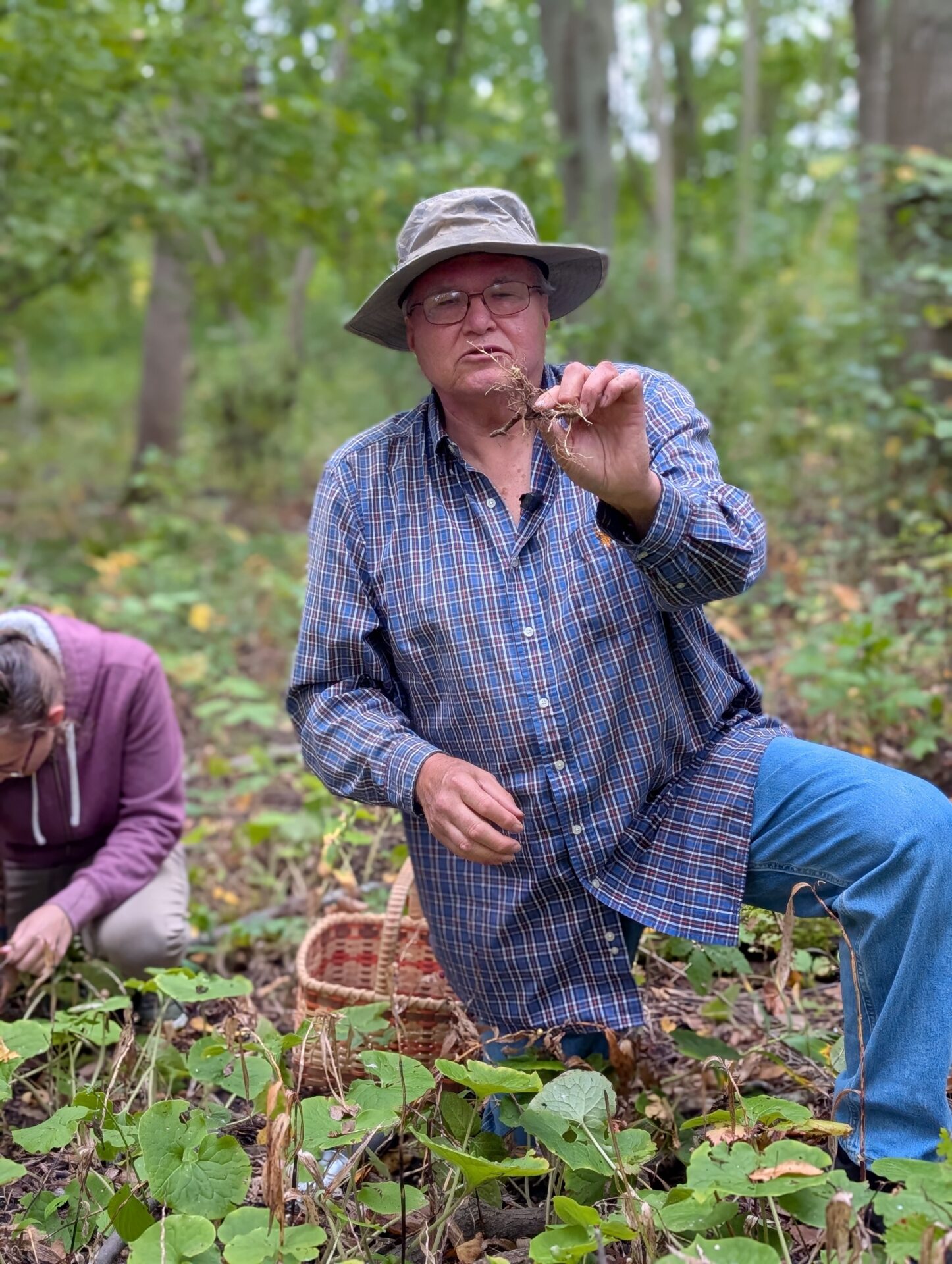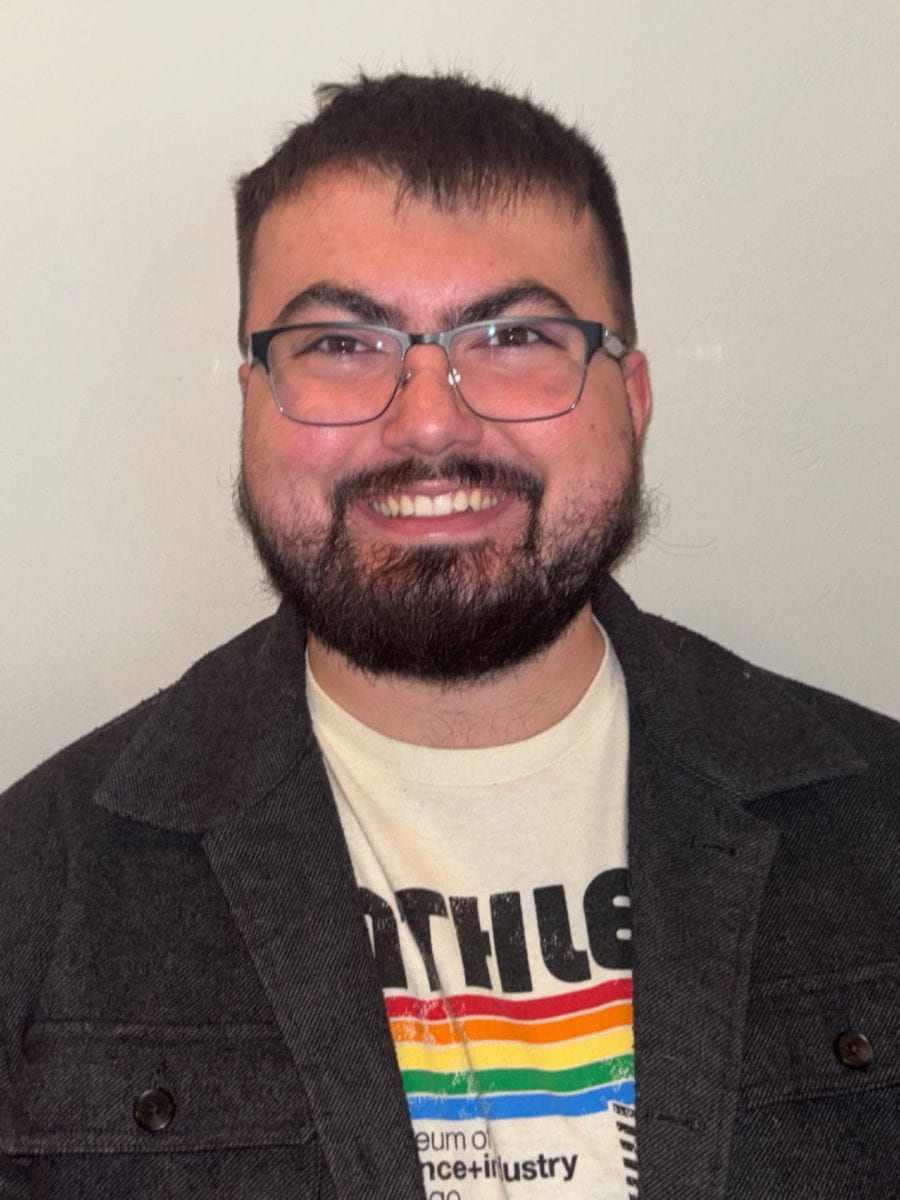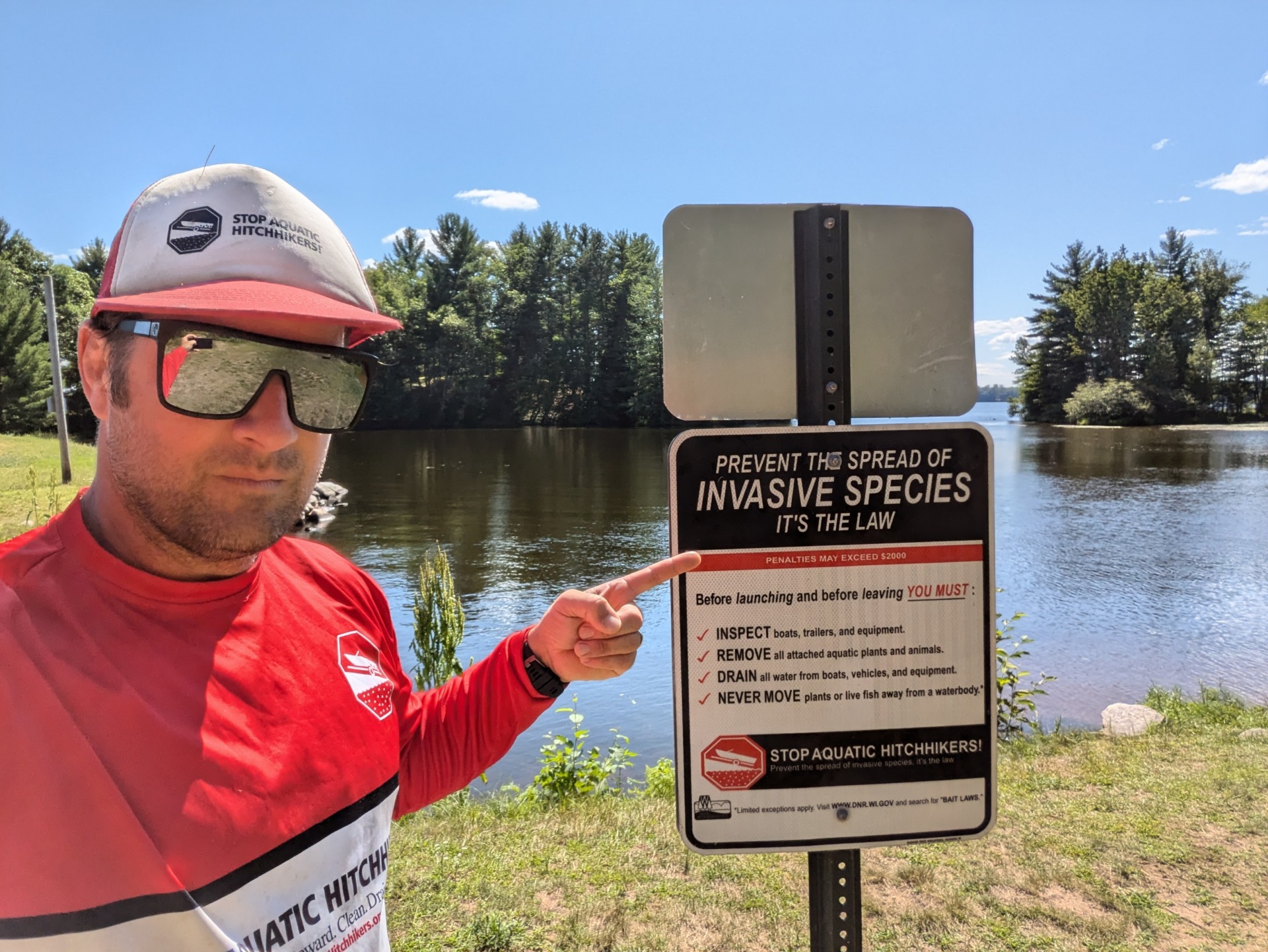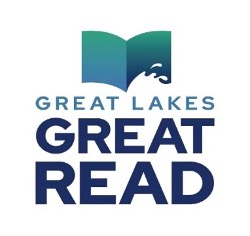
Randy Cornelius holds up the root of a wild ginger plant. Photo: Julia Noordyk
In late September, Randy Cornelius kneeled in the middle of the Communiversity Park woods to greet a patch of wild ginger. Around him, a small group of University of Wisconsin–Green Bay students and staff leaned in to look at the leggy, yellowing plants with heart-shaped leaves. Cornelius pointed to one taller than the rest.
“I call them grandmas, the big ones,” he smiled.
It’s a fitting name. From a young age, Cornelius learned about the many uses of plants from his own grandmother, who took him foraging. Now, the Oneida Nation elder is the teacher, and this fall, he’s sharing stories and knowledge as part of the “Outdoor Learning from an Elder” series.
Organized by the UW–Green Bay Center for First Nations Education and Wisconsin Sea Grant, the series invites students and staff to get outside and learn more about natural areas on and off campus. Evan Brenkus, this year’s Sea Grant First Nations graduate assistant, worked with Julia Noordyk, Sea Grant’s water quality and coastal communities outreach specialist, to plan the events.
“Having our elders come out and talk about their experience with the land, and working with nature in general, and sharing that knowledge with students on campus is just an amazing opportunity in my eyes,” said Brenkus.
The plant walk was the first of three outings with Cornelius. In October, participants visited Trout Creek on the Oneida Nation Reservation to learn about wetland restoration and bird habitat, and in November, they’ll head to the Wequiock Creek Natural Area for a discussion on hunting and sustainability.
“We’re really grateful for Randy,” said Noordyk. “He’s generous with his time and knowledge, and he’s a great storyteller, too. I think people are enjoying the opportunity to get outside and learn from him.”
Sharing language and culture across generations

Evan Brenkus is this year’s Sea Grant First Nations graduate assistant. Submitted photo.
The Oneida language was central to September’s plant walk through Communiversity Park. In addition to introducing himself in Oneida, Cornelius handed out Oneida language field guides and invited participants to practice the tobacco-offering speech he recites when harvesting plants. Offering tobacco, Cornelius explained, shows respect to the plant and strengthens people’s relationship to the land.
The words were familiar to Brenkus, who began taking Oneida language courses in high school. A fan of math, he fell in love with the patterns and continued studying the language throughout college. He loves it so much, in fact, he’s currently developing a keyboard that will allow speakers to easily type the language.
“It’s hard to describe how complex it is, and how formulaic it is, and how interesting and intricate it is,” he said. “It’s like a living math equation. That’s the best way I can describe it.”
As the First Nations graduate assistant, Brenkus’s job is to connect students with elders for learning opportunities like these. He organizes the outdoor learning series as well as weekly elder hours, which bring oral tradition scholars to campus for open office hours. The language, stories, and knowledge they offer are gifts.
“I don’t feel like students really understand how amazing that is, that there’s people in our area who have that knowledge and have that cultural expertise, and it’s being shared with them for free,” Brenkus said.
A former student regent, Brenkus is used to navigating multigenerational spaces. He was one of two student voices on Universities of Wisconsin System Board of Regents from 2023-2024 and provided insider perspectives on campus issues.
“[The regents] were very keen on listening to what the student regents had to say because they’re there on the ground,” he said. “I learned so much. I grew up a lot.”
Back to the woods
The final field trip of the “Outdoor Learning from an Elder” series will be on November 12 at the Wequiock Creek Natural Area, a campus property located several miles northeast of UW–Green Bay’s main campus. The area is important to both Ho-Chunk and Menominee nations, whose creation stories take place on the bay of Green Bay, as well as the Potawatomi and Oneida nations, who later settled there. Wequiock Creek is also the site of recent prairie and wetland restoration projects.
From 3:30 to 5 p.m., Cornelius will lead participants on a walk through the natural area and discuss traditional hunting practices and sustainability. The event is open to all UW–Green Bay students, staff, and faculty.
Brenkus hopes to see some familiar faces at the last event of the semester.
“My goal is just to have people who keep coming back and keep wanting to learn more and hear from our elders because they have a lot of important stuff to share, and they’re not here forever.”
Spring 2026
The series will continue in spring of 2026 with the following events:
- February 17, 3:30 – 5:00 p.m – Great Law of Peace at the Oneida Longhouse
- March 10, 3:30 – 5:00 p.m. – Maple Tapping & Sugar Making at the Oneida Reservation
- April 14, 3:30 – 5:00 p.m. – Bird Migration & Monitoring on the UW-Green Bay campus

A group of UW–Green Bay students and staff gather around Randy Cornelius as he explains the uses of wild ginger. Photo: Wisconsin Sea Grant





